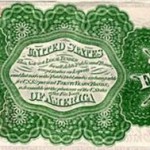
I was once again shocked and disappointed Monday on reading about President Obama’s recent comments about the success of the nation’s entrepreneurs.
It is clear that Mr. Obama is no fan of successful businesses. The only businesses he seems to support are the ones that are not in the business of making money, but those who worship at the shrines of environmental activism, “social responsibility”, and political correctness.
To Mr. Obama, profit is not a goal. It is a fault to be corrected. To Obama, profit is proof that something shady is going on, not something earned by the sweat and skill of the dilligent and resourceful. Earning a profit is something to be ashamed of, while losing money, or even going bankrupt is an inevitable result of doing “the right thing”.
Obama’s supporters are quick to point out the “support” he has provided to businesses (like Solyndra), but his policy seems to echo the old Reagan quote—”If it moves, tax it. If it keeps moving, regulate it. If it stops moving, subsidize it.” In the world of Mr. Obama, profitable companies get only criticism, higher taxes, and more regulation, while failures like Solyndra get subsidies and praise.
So Monday morning his comments about business did not come as a surprise, but they do demand a response.
First of all, Mr. Obama is a leader. Our leaders are a focus of attention, and have impact on the national character. If our leaders lionize effort, faith, self-reliance, and independence, we are likely to attain a more active, faithful, self-reliant and independent population.
If our leaders lionize government as the source of all success, and gives no credit to those actually running businesses for the businesses they create and run, we will not have many people inspired to be entrepreneurs.
Pile on top of this an attitude toward profit and wealth that seems to punish those who are successful, and threatens to take the wealth that a successful business might earn, and I don’t see why anyone would want to run a business.
… and we wonder why there are “not enough jobs” being created.
It is bad enough that we are advertising how easy it is to get food stamps, and telling those who get public assistance that it is their “right” and the not-so-subtle message that their choices and actions are not relevant to their success or failure.
Now Mr. Obama is saying that those who have made the sacrifices of time and treasure to start and run a business do not deserve any credit for their success.
The United States has always been the home of “Yankee Ingenuity” and the “Can-do” attitude. If someone wanted to design a plan to destroy that spirit, it is hard to imagine one more thorough and effective than the everyday rhetoric and policies of our current administration.


